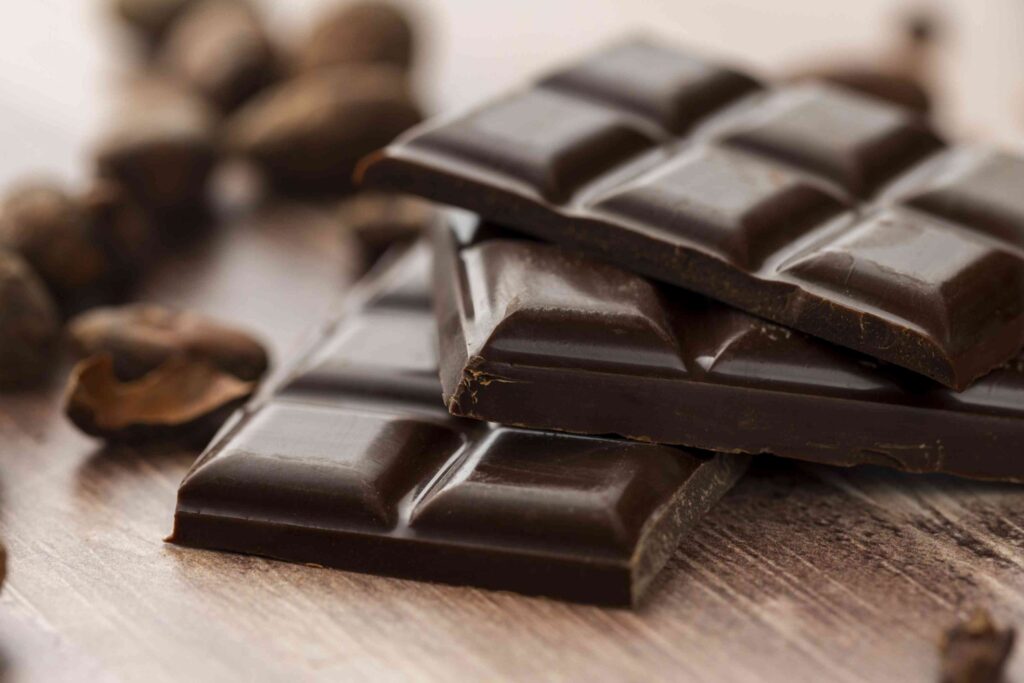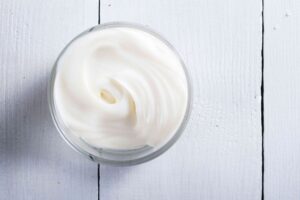:max_bytes(150000):strip_icc():format(jpeg)/Health-GettyImages-1400452697-0c4ab2ad4ff14c45bf6bb5e5af4bec64.jpg)
1.2 million people in the U.S. are diagnosed with type 2 diabetes every year—but could dark chocolate help reduce the risk of developing the condition?
Dark chocolate is a go-to sweet treat for many Americans, and it also has a number of documented health benefits. It’s high in cocoa content, which has antioxidant and anti-inflammatory properties and may improve insulin sensitivity. But it isn’t clear whether eating more dark chocolate can actually reduce the risk of type 2 diabetes.
A new study—published Wednesday in BMJ—sought to answer this question. Researchers collected data from more than 192,000 people who filled out surveys to detail how often they ate different types of chocolate.
Over decades of follow up, the results showed that people who ate more than five servings of dark chocolate each week had a 21% lower chance of developing diabetes as compared to those who didn’t or rarely ate dark chocolate.
Additionally, “eating more milk, but not dark chocolate, was associated with gaining more weight over time,” study author Binkai Liu, a PhD student at the Harvard T.H. Chan School of Public Health, told Health. “We were surprised to find a clear split of dark and milk chocolate’s impact on diabetes risks and long-term weight management.”
Here’s what experts had to say about the connection between type 2 diabetes and dark chocolate and why they still don’t recommend adding chocolate to your diet to prevent the condition.
For the new BMJ study, Binkai Liu and her colleagues looked at data collected from the Nurses’ Health Studies I and II cohort and the Health Professionals Follow-Up Study, which followed nurses for decades to understand how food, hormones, and other environmental factors affect health.
Over an average monitoring period of 25 years, over 192,000 healthy adults completed a food frequency questionnaire every four years, which included how much chocolate they ate. Almost 112,000 participants tracked their intake of dark and milk chocolate individually.
In total, 18,862 people developed type 2 diabetes. There were 4,771 cases among the group who documented the types of chocolate they consumed.
The researchers found that participants who ate at least five ounces of any type of chocolate weekly had a 10% lower risk of developing type 2 diabetes in comparison to those who never or rarely consumed chocolate.
When analyzing the different types of chocolate people consumed, researchers found eating dark chocolate specifically was associated with a 21% lower risk of type 2 diabetes. There was an additional 3% reduction in risk for every additional serving of dark chocolate participants ate per week.
“For this population, the 20-year risk for type 2 diabetes may be about 8–10%,” Richard Seigel, MD, endocrinologist and co-director of the Diabetes and Lipid Center at Tufts Medical Center, told Health. “With a 20% relative risk reduction and a 10% absolute risk to start, it would mean that over 20 years, eight people out of 100 would develop type 2 diabetes rather than 10.”
In contrast, milk chocolate did not lower the risk of type 2 diabetes. Rather, it was associated with long-term weight gain, a risk factor for type 2 diabetes.
The study’s findings are intriguing, but there are still a number of questions left unanswered when it comes to the connection between type 2 diabetes and dark chocolate.
For one, the study is observational, which makes it impossible to determine whether dark chocolate is actually causing the reduction in type 2 diabetes risk (or if there’s some other factor at play).
Plus, the study population may not be representative of the standard U.S. population.
The people in the study ate chocolate less often than the general population does on average. “It’s possible that subjects in the dark chocolate group are healthier in general, thus the risk for type 2 diabetes is lower in this subgroup,” Sandra Arévalo, MPH, RDN, a spokesperson for the Academy of Nutrition and Dietetics, told Health.
Additionally, the participants were primarily “non-Hispanic white adults over the age of 50 at baseline, which might limit the generalizability of our findings,” said Binkai Liu. Participants in the study may have also been more educated or had a higher-than-average socioeconomic status since they were health professionals.
But Binkai Liu said that, even after accounting for these demographic factors, the study results remained the same.
A final limitation is the fact that the study relied on food frequency questionnaires—these ask participants to remember how often they ate certain foods over the past year, and some researchers have raised concerns about their accuracy.
It’s true that dark chocolate is a healthier option—at least compared to milk chocolate—because it contains more cocoa and flavonols.
“Cocoa is rich in bioactive compounds such as [flavonols], which are known to improve insulin sensitivity and have antioxidant and anti-inflammatory properties,” said Binkai Liu. Other observational studies have found that people who eat foods rich in these micronutrients have a reduced risk of type 2 diabetes.
However, experts caution that we don’t know if dark chocolate is responsible for this effect.
“Observational studies like this one often show associations but cannot definitively prove cause and effect,” Simin Liu, MD, ScD, chair of the Department of Epidemiology and Biostatistics at the University of California, Irvine, told Health. “While the study may suggest a link between dark chocolate consumption and a reduced risk of type 2 diabetes, further research—particularly randomized controlled trials—is needed to establish a causal relationship.”
One randomized-controlled trial published last year found that, among 18,000 adults, cocoa extract did not reduce the risk of developing type 2 diabetes over the course of 3.5 years, Simin Liu added. More expansive studies may be needed to determine whether there is a longer-term effect.
Though the study found that people who ate dark chocolate had a lower risk of developing type 2 diabetes, it doesn’t necessarily mean you should add more chocolate to your diet.
“As a registered dietitian, I wouldn’t prompt my patients to start eating chocolate if they aren’t chocolate eaters. But [I] would encourage milk chocolate eaters to try dark chocolate instead,” Arévalo said. “I’d like to wait for the results of similar studies before I start asking people to start eating chocolate.”
Fruit is another unprocessed, sweet option for dessert that is both nutrient-dense and delicious, Siegel and Arévalo said.
“Dark chocolate can offer benefits when consumed in moderation, but overconsumption may lead to excessive calorie intake, negating those benefits,” said Binkai Liu. “The key takeaway is that balance and moderation are essential.”













